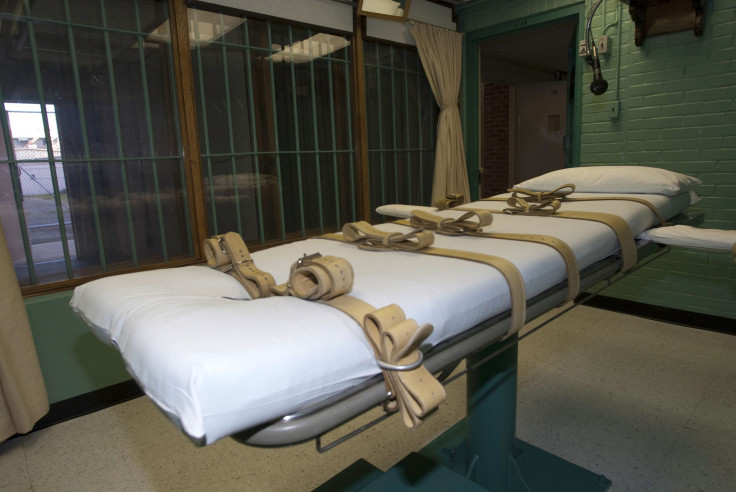Shareholders Can’t Force Pharmaceutical Company To Prove Drugs Aren’t Used For Executions

Cardinal Health shareholders wanted to be sure that the company’s medicines were not used for lethal injections. But the Securities and Exchange Commission Friday approved the health services company’s request to block the shareholder proposal from coming to a vote.
Cardinal Health, which distributes pharmaceuticals, medical supplies and equipment across the country, earned a profit of $1.29 billion last year. The company objected to the shareholder proposal, which identified eight drugs sold by Cardinal that are used for executions. An investigation by the Associated Press found that at least three doses of one of those drugs, rocuronium bromide, were purchased by the Virginia Department of Corrections. In Virginia’s lethal injections, rocuronium bromide is used to stop breathing after a sedative is administered.
Cardinal Health declined to comment for this article.
The shareholder resolution was brought by the New York State Common Retirement Fund, the state’s public pension plan. The pension fund is the third largest in the country, valued at roughly $192 billion. Its proposal was for Cardinal to produce a report detailing the controls it has in place to ensure that its drugs are not sold to prisons, as they were in Virginia.
Filings show Cardinal argued to the SEC that the proposal deals with the company’s “ordinary business operations,” such as relationships with suppliers and sales to customers, and can therefore be excluded from a shareholder vote. The SEC has been increasingly permissive of corporation’s requests to not let shareholder resolutions move forward — with 78 percent approved this year, compared to 68 percent in 2016. Meanwhile, Texas Rep. Jeb Hensariling, Chair of the House Financial Services committee, has introduced legislation that would drastically reduce the number of shareholders able to file proposals.
Read: Are Republicans Trying To Eliminate Activist Investors? Bill To Replace Dodd-Frank Could Silence Shareholders
The impetus for New York’s proposal was not a moral concern about the death penalty but an extension of the pension fund’s fiscal responsibility. The fund, a long-term investor focused on stable profits, is concerned about the potential damage to a company’s reputation — and therefore value — if it becomes known as a supplier of drugs for lethal injection.
“Many pharmaceutical manufacturers oppose the use of their medicines in executions and impose contractual restrictions on their distributors to prevent their use in lethal injections,” Matthew Sweeney, spokesperson for the New York State comptroller’s office, told International Business Times. “If Cardinal were to provide a restricted drug for use in an execution, and breach a contract with the manufacturer, it would put itself, and its investors at risk of financial and reputational damage.”
All FDA-approved manufacturers of these pharmaceuticals in the U.S. publicly oppose the use of their drugs in lethal injections. Pfizer is the primary producer of rocuronium bromide in the country and its contracts with distributors, such as Cardinal, require those companies to be sure that their drugs do not wind up being used in executions. Pfizer’s public policy paper on the issue reads, in part:
“Pfizer makes its products to enhance and save the lives of the patients we serve. Consistent with these values, Pfizer strongly objects to the use of its products as lethal injections for capital punishment.”
However, Pfizer did not have that policy until May of last year. The drug manufacturer’s decision was, in part, attributed to pressure from the New York pension fund, which filed a similar shareholder proposal in late 2015. Even though the SEC allowed the proposal to be exempted and it was never brought to a vote, the public pressure and threat of shareholder action was enough to persuade Pfizer that the potential damage to its reputation was not worth the risk. Cardinal may yet come to the same conclusion.
© Copyright IBTimes 2024. All rights reserved.





















